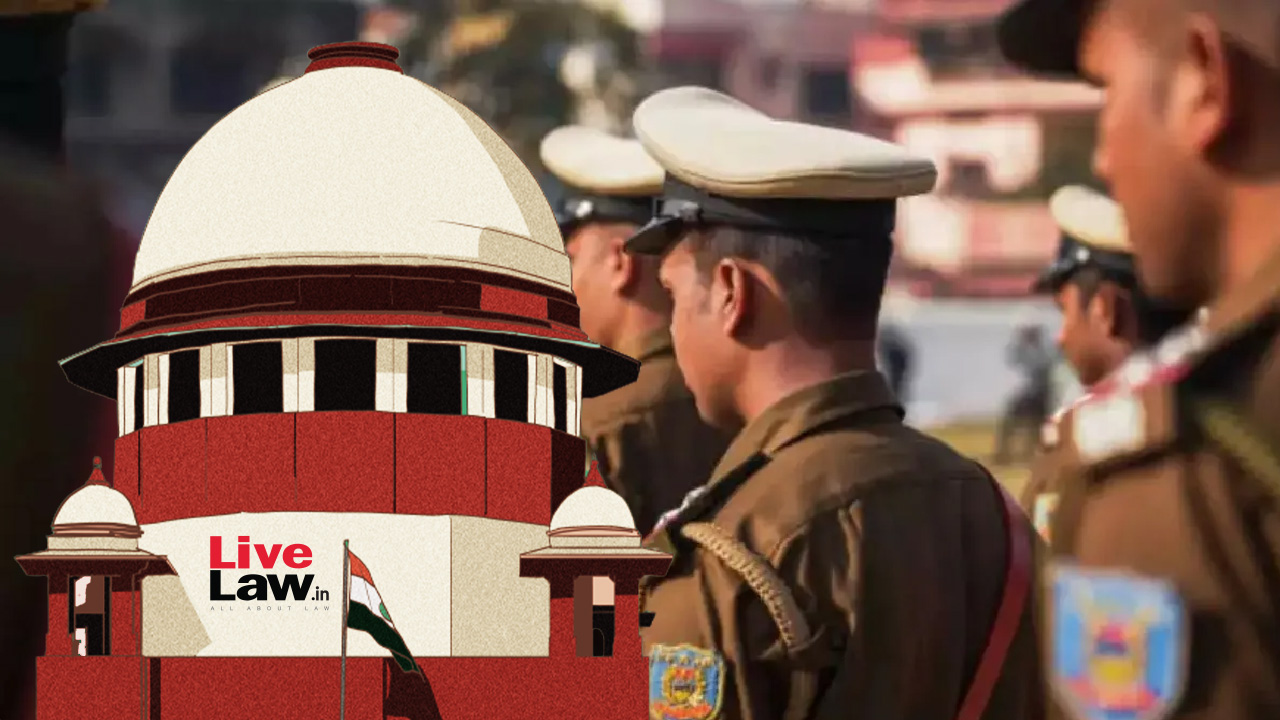 |
|
The Supreme Court of India recently delivered a landmark judgment in the case of Om Prakash Yadav versus Niranjan Kumar Upadhyay & Ors (2024 LiveLaw (SC) 989), significantly impacting the prosecution of police officers accused of fabricating evidence and lodging false cases. The Court decisively ruled that police officials cannot shield themselves from prosecution under Section 197 of the Code of Criminal Procedure (CrPC) simply because they are accused of actions arising from their official capacity. The crux of the ruling hinges on the distinction between acts performed in the legitimate discharge of official duties and those constituting clear abuses of power or criminal misconduct. The Court explicitly stated that fabricating evidence and filing false cases are unequivocally outside the scope of legitimate police work and therefore do not qualify for the protection afforded by Section 197 CrPC.
The case involved an appeal against a decision by the Madhya Pradesh High Court, which had quashed criminal proceedings against police officers accused of creating false alibi documents to protect the accused in a murder case. The High Court's rationale was the absence of prior sanction under Section 197 CrPC before the initiation of prosecution. The Supreme Court, however, overturned this decision, highlighting the High Court's error in prematurely quashing the case at a preliminary stage. The Supreme Court emphasized that determining whether an act falls within the ambit of official duties requires a thorough examination of evidence, a process best undertaken by the trial court rather than through a premature quashing of the case. The Court cautioned against the premature staying or quashing of criminal trials before a proper evaluation of evidence, thereby potentially hindering justice.
The Supreme Court's judgment provides crucial clarity on the application of Section 197 CrPC. The Court reiterated that the applicability of this section must be determined on a case-by-case basis, considering the specific facts and circumstances. The judgment cites numerous precedents where the Court has consistently held that acts such as threatening witnesses, illegally detaining individuals, engaging in criminal conspiracies to fabricate documents, or conducting searches with malicious intent cannot be considered part of legitimate official duty and therefore are not protected under Section 197 CrPC. The Court's reasoning underscores the need to prevent public servants from using their official position to shield themselves from accountability for criminal acts.
The implications of this ruling are far-reaching. It strengthens the mechanisms for holding police officers accountable for misconduct, thereby promoting greater transparency and integrity within law enforcement. By clarifying the boundaries of Section 197 CrPC, the Supreme Court has effectively removed a potential loophole that could have been exploited to obstruct the prosecution of corrupt or abusive officials. The judgment serves as a potent deterrent against police misconduct and reinforces the principle that no one, regardless of their position, is above the law. The Court’s decision emphasizes the importance of due process but also stresses the need to prevent the abuse of power by those entrusted with maintaining law and order.
The Supreme Court's decision not only addresses the immediate case but also sets a precedent for future cases involving allegations of police misconduct. It underscores the need for a rigorous and fair investigation of such allegations, ensuring that the appropriate legal process is followed without undue impediment. The decision reinforces the importance of judicial oversight in upholding the rule of law and protecting the rights of citizens. By emphasizing the need for a thorough investigation and the limitations of Section 197 CrPC in cases of clear abuse of power, the Supreme Court has taken a significant step towards improving accountability and promoting justice within the law enforcement system. The Court's clear and unambiguous judgment leaves little room for misinterpretation, ensuring that police officers are held responsible for their actions when they overstep their authority or engage in criminal activity.
Furthermore, this ruling underscores the broader context of police reform and accountability in India. It aligns with the ongoing efforts to enhance transparency and trust in law enforcement institutions. The decision contributes to a growing body of case law that reinforces the principles of due process and accountability, and strengthens the framework for addressing police misconduct effectively. The judgment emphasizes the delicate balance between protecting public servants acting in good faith and holding those who abuse their powers accountable, ensuring that justice is served in cases of police misconduct.
